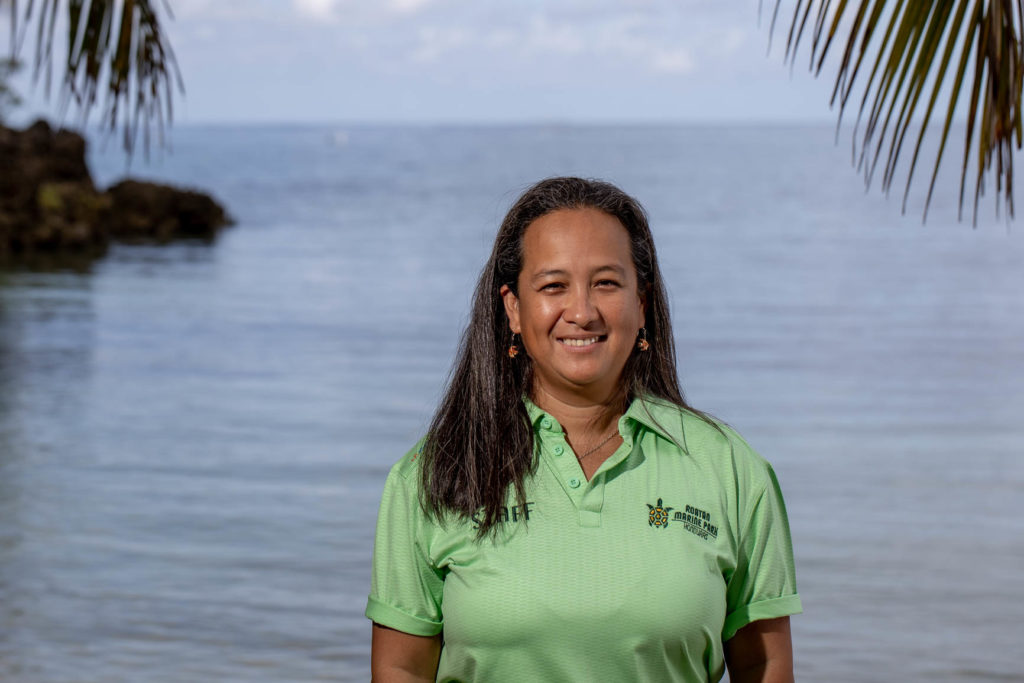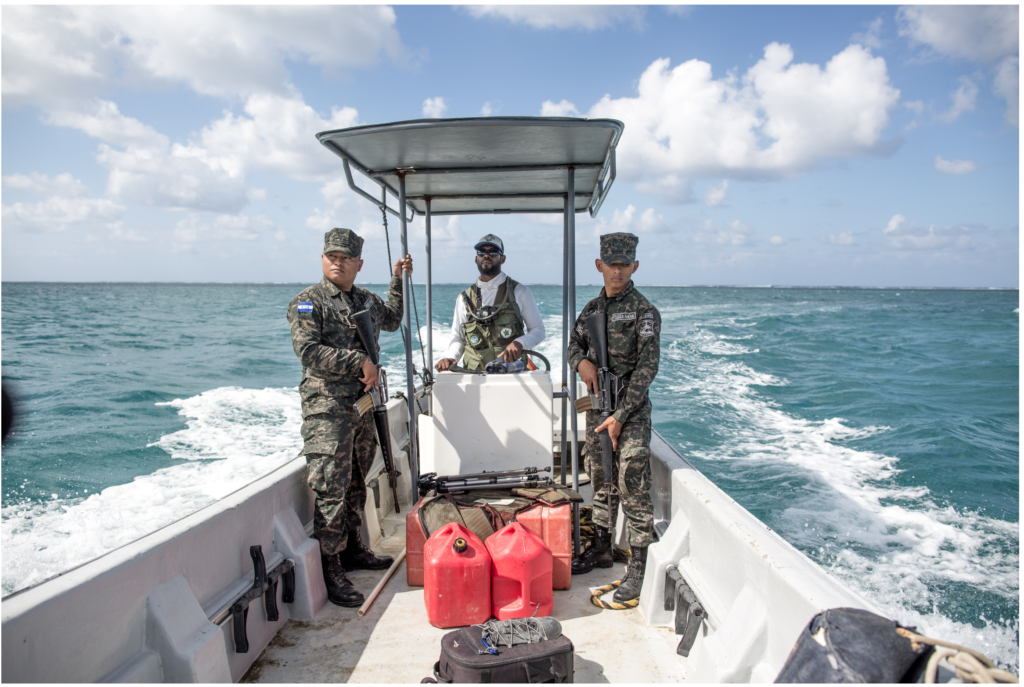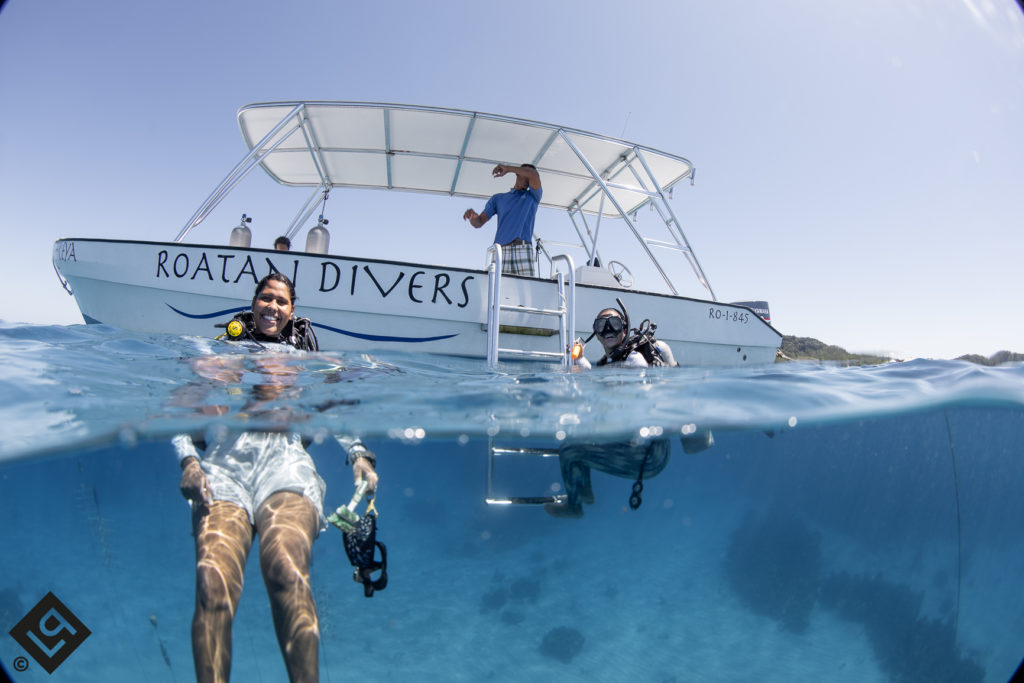As Executive Director of the Roatán Marine Park, Francis Lean can relate to her tourist clientele—she used to be one of them. Originally from Tegucigalpa, the capital of Honduras, Lean used to join the 1.6 million people who visited Roatán on vacation each year.
Roatán is one of the three main islands that make up the Bay Island chain on the Caribbean coast of Honduras. Its economy is highly dependent upon tourism, and travelers from around the world flock to the island to enjoy its beautiful white sand beaches and turquoise waters. The Roatán Marine Park (RMP) is one of 14 organizations that are responsible for day-to-day management of the resources within the Bay Islands National Marine Park, the largest marine protected area in Honduras.

Like many businesses and organizations on the island, RMP is almost entirely reliant upon tourism—85% of its operating budget is tied to tourism, both directly and indirectly. So when COVID-19 led to widespread global lockdowns and a sudden halt in tourism, it hit the community and RMP like a ton of bricks.
Overnight, their revenue plummeted. Their four gift shops, which typically account for nearly half of their revenue, no longer had any customers. Donations from tourists stopped coming. Hotels, restaurants and dive shops halted their sponsorships as they struggled to cover their own expenses.
“We couldn’t believe it. It was very scary,” describes Lean. “Personally, I was very positive, thinking it would be over in a few days or a couple of weeks. But after a couple of weeks, I realized that we were going to have to make some tough decisions and prioritize.”
The RMP team decided that maintaining their patrols was their top priority. “With everything that was happening, people were going to head to the ocean to get food,” says Lean. “We needed to make sure they did it sustainably.”
As predicted, from April to June RMP saw a 150% increase in poaching compared to the same period last year. But paying for patrols meant they had to make cuts elsewhere. The non-patrol staff agreed to cut their hours and their salaries by 50%, and they closed all but one of their gift shops.

Despite the hardships, Lean says RMP has been fairly resilient overall. She attributes much of that resilience to the relationships and collaborations they have in the community, which, she says, is largely a result of the support they have received from CORAL over the years.
She highlighted their partnership with the Honduran Navy as an example, something CORAL helped establish. Every RMP patrol boat carries two members of the Navy to help with enforcement and safety. With five patrol boats, that’s at least ten Navy members per day. Typically, her staff would drive to another part of the island to pick up the Navy members from their base and bring them to the park office before each patrol. But with resources and time now a scarce commodity, community members have stepped up to house and feed Navy members locally and donate fuel for the patrol boats.
RMP staff members also have taken to digital fundraising and marketing efforts. “We’re going digital,” says Lean. “We opened up a store online so now we can sell our products online, and we’re doing online fundraising also.” And with CORAL’s help, they have received a few grants to help cover some of their operating costs. CORAL has also created the Honduras COVID Reef Rescue Fund to solicit donations for RMP.

Slowly, tourists are starting to return to the island. “People are feeling more positive now,” says Lean. “People are starting to work again and some of the dive shops are starting to get a small trickle of customers.”
Looking forward, Lean knows they will be feeling the impacts of this downturn for years to come. But she’s confident in the organization’s ability to adapt and sees these past few months as an opportunity for the community and local businesses to reassess and reevaluate how they operate. At RMP, they are brainstorming new ways to diversify their revenue stream and are looking to secure more grant funding to make that happen.
In the meantime, Lean encourages people to start following the Roatán Marine Park on social media and visit Roatán again. “The island is here waiting for you guys to come see it and take care of it,” pitches Lean. “This is the time to come to Roatán—the reef has taken a break from people, and that’s a good thing.”
